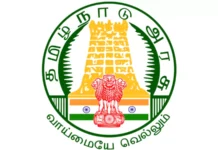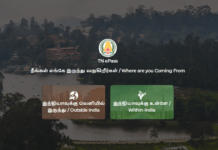Health Insurance Scheme
The Comprehensive Health Insurance Scheme initiated by the Chief Minister of Tamil Nadu is a key program aimed at delivering financial security and accessible healthcare to economically disadvantaged families throughout the state. This initiative seeks to alleviate the financial strain of medical costs by providing cashless treatment for a variety of illnesses, surgeries, and procedures in both government and accredited private hospitals. It assists families who frequently find it challenging to afford expensive treatments, guaranteeing that quality healthcare is available not just to those with sufficient financial resources. By extending its coverage to millions of households, the scheme significantly contributes to enhancing overall health outcomes and fostering social welfare.
The primary focus of the scheme is on low-income families holding a valid ration card, with an annual family income that falls within the eligibility criteria established by the government. Beneficiaries receive a smart card that includes their personal information, biometric data, and insurance coverage details. This card enables them to access cashless services at empaneled hospitals without needing to make advance payments. The enrollment process is straightforward and usually takes place at designated centers where applicants can present their documents and undergo biometric verification. Once registered, the family can take advantage of the scheme for the entire policy duration.
A significant advantage of the scheme is its wide-ranging coverage. It encompasses an extensive array of medical and surgical procedures, including cardiology, oncology, orthopedics, nephrology, neurosurgery, and many more. Treatments for life-threatening illnesses, organ transplants, and critical care procedures are also part of the coverage, assisting families who might otherwise endure severe financial difficulties. Furthermore, the scheme includes follow-up care and certain diagnostic services, minimizing out-of-pocket expenses even after major treatments. By covering both pre-authorization and post-treatment costs within defined limits, the scheme guarantees comprehensive protection.
Related Posts

The network of empanelled hospitals represents a crucial element. Beneficiaries have the option to select from a wide range of government and private hospitals throughout Tamil Nadu that adhere to the quality standards established by the state. These hospitals undergo regular monitoring to ensure they comply with treatment protocols, service quality, and cost regulations. The provision of cashless treatment motivates more families to pursue timely medical attention, particularly in emergencies or for chronic conditions that necessitate long-term management. Accessibility is further enhanced by the presence of help desks and coordinators within the hospitals, who assist patients in navigating the process.
Another primary aim of the scheme is to alleviate the financial burden associated with unforeseen medical emergencies. For numerous low-income families, a single significant illness can lead them into debt. By covering expensive procedures and ensuring that beneficiaries are not required to pay at the point of service, the scheme aids in preventing such economic instability. It also promotes preventive healthcare by instilling confidence in individuals to seek medical assistance early, rather than postponing treatment due to financial limitations.
The scheme also plays a vital role in bolstering public health infrastructure. As more individuals access healthcare services, hospitals are incentivized to uphold higher standards, enhance facilities, and implement transparent billing practices. Government hospitals, in particular, gain from an increased patient influx, which stimulates investments in equipment, staff training, and cutting-edge medical technologies. Over time, this fosters a healthier society with improved access to advanced medical care.
Website Link
The Comprehensive Health Insurance Scheme initiated by the Chief Minister of Tamil Nadu is an essential social welfare initiative that safeguards families against the increasing expenses of healthcare. It guarantees that even the most economically disadvantaged individuals can access quality medical care without the anxiety of financial strain.
Through the provision of cashless services, broad coverage, and a robust network of hospitals, this scheme persistently enhances the inclusivity, accessibility, and fairness of healthcare for millions in Tamil Nadu.
























